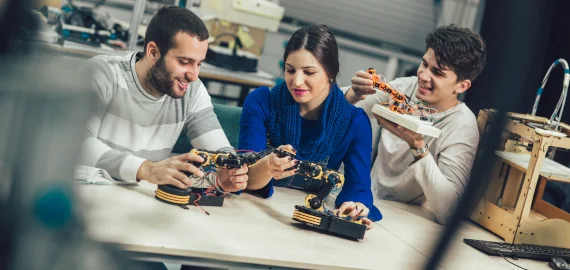
Improving ecodesign of products and development of testing methods for products prioritised under the Ecodesign for Sustainable Products Regulation
4.000.000€
Description
The main goal of this opportunity is to support the transition to a circular economy by improving the design and assessment of sustainable products. The focus is on reducing resource use and environmental impact, while encouraging innovative business models and better product design. Projects should address circularity, durability, reliability, reusability, upgradability, reparability, and recyclability, as well as promote social sustainability and changes in consumer behavior. The scope covers eligible countries as defined in the Horizon Europe Work Programme, with a particular emphasis on products prioritized under the Ecodesign for Sustainable Products Regulation.
Admissible Projects
-
Choose at least one ESPR‑prioritised product group (detergents, paints, chemicals, non‑ferrous metals, home/interior textiles, footwear or toys) and define relevant sub‑categories for EU market analysis.
-
Assess existing and potential new product parameters linked to circularity, including durability, reusability, reparability, resource efficiency, recycled content, remanufacturability, waste generation, premature obsolescence, and social sustainability.
-
Evaluate product performance using ESPR‑aligned methods and explore improvement pathways for selected parameters.
-
Develop, validate, and pilot product-specific testing methods to verify ecodesign performance indicators.
-
Analyse material flows and cross‑value‑chain impacts of potential ecodesign requirements (e.g. recycled content mandates affecting raw material availability).
-
Conduct consumer behaviour research to understand acceptance and usage patterns related to ecodesign features.
-
Propose policy and incentive mechanisms to promote circular design (e.g. extended warranties, VAT reductions, repair schemes), mitigating trade‑offs.
Example projects:
- Developing a new assessment tool using AI to measure the durability and recyclability of home textiles.
- Creating a training program for SMEs to improve the reparability of toys and reduce environmental impact.
- Designing circular business models for the reusability and upgradability of footwear using sustainable materials.
Eligible Expenses
- Personnel costs for project staff and researchers
- Costs for developing and testing digital or AI-based assessment tools
- Expenses for materials and prototypes related to prioritized product groups
- Travel and subsistence for project meetings and dissemination
- Training material development and delivery
- Workshops, seminars, and stakeholder engagement activities
- Communication and dissemination costs (including publications and outreach)
- Costs for data collection, analysis, and reporting
- Subcontracting necessary project tasks
- Equipment and software needed for project implementation
Restrictions: All expenses must fit within the lump sum funding model and directly relate to the approved project activities.
Financial Information
- Budget for this Call: 8,000,000€
- Number of Grants attributed: 2
- Budget per grant: 4,000,000€
Eligibility Criteria
-
Type of Action: Research & Innovation Action (RIA).
-
Consortium Composition: Requires a consortium of at least 3 independent legal entities from three different EU Member States or Horizon Europe Associated Countries.
-
Eligible Participants: Legal entities—such as universities, research organisations, SMEs, industry partners, public sector bodies—registered in EU or associated countries.
-
Coordinator: Must be established in an eligible country.
-
Affiliated Entities: May participate but do not count toward the minimum consortium number.
-
Third-country Participants: Allowed to join the consortium but their participation does not fulfil consortium requirements and are typically not EU-funded.
Get matched with our experts

Need help applying?
Improving ecodesign of products and development of testing methods for products prioritised under the Ecodesign for Sustainable Products Regulation
5
Specialized Consultants
SMART Application Package

Initial meeting to confirm eligibility.
Connection with the best specialized consultant for the incentive and industry.
Complete management and submission of application.
Timeline
May 6, 2025
Opening of Applications
The date when applications for the opportunity open.
Sept. 17, 2025
Deadline for Submission
The date when applications for the opportunity close.
May 6, 2025
Opening of Applications
The date when applications for the opportunity open.
Sept. 17, 2025
Deadline for Submission
The date when applications for the opportunity close.
